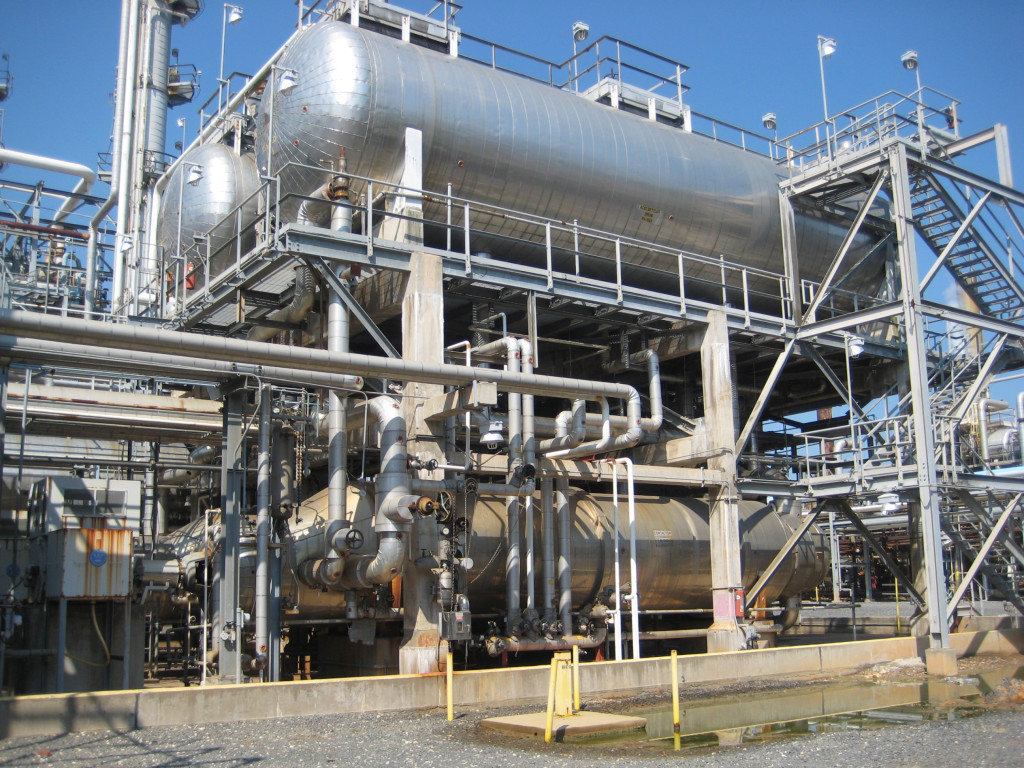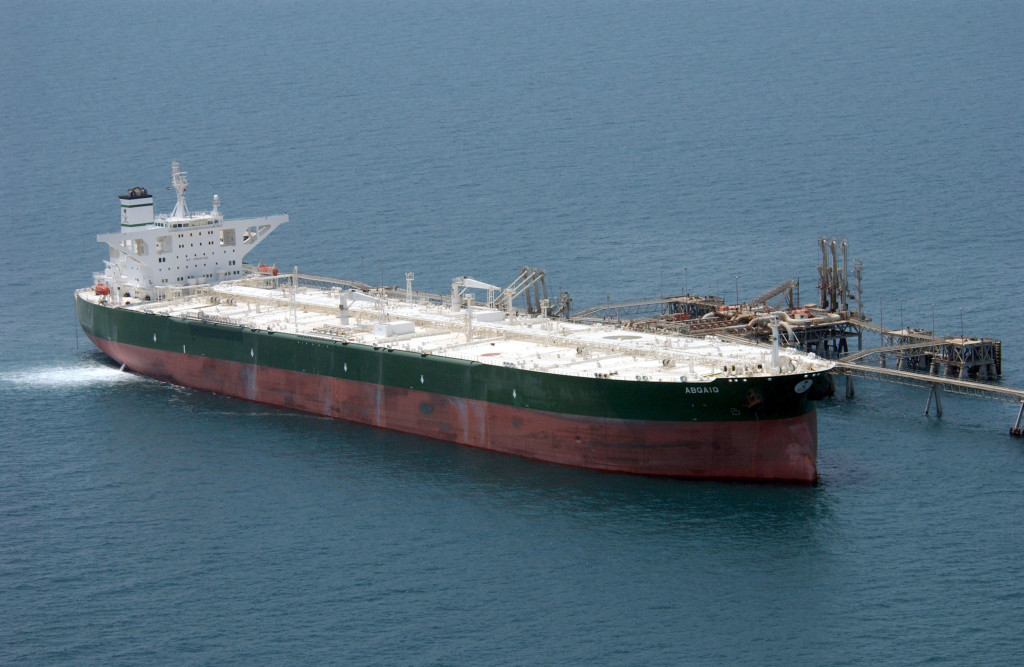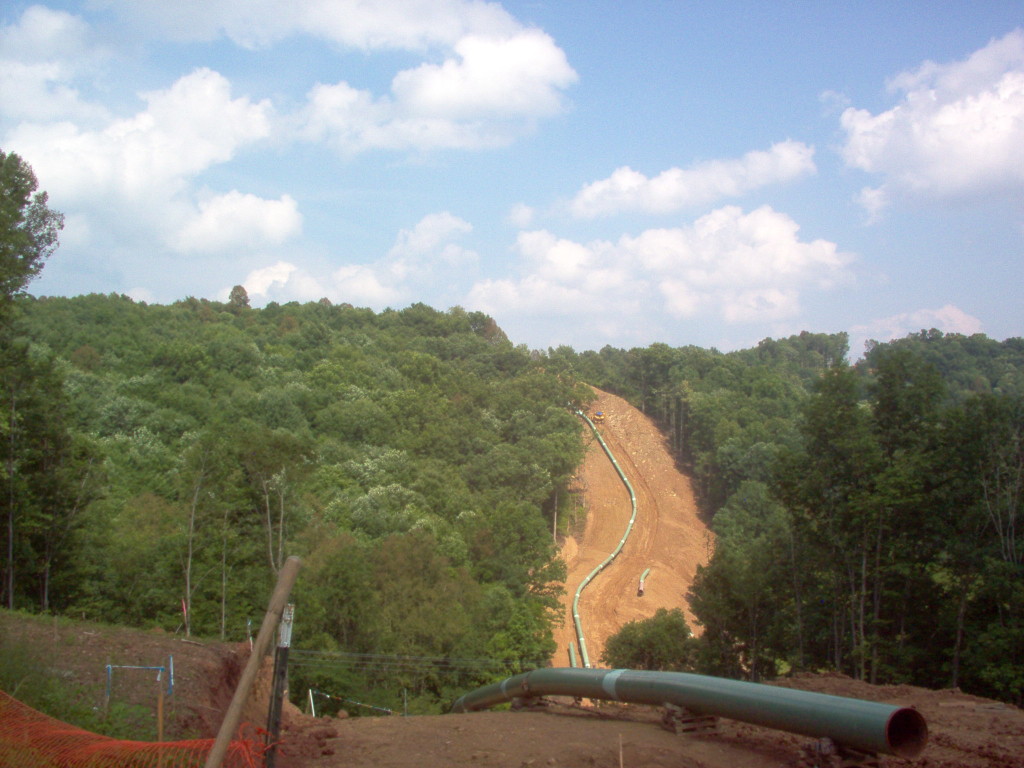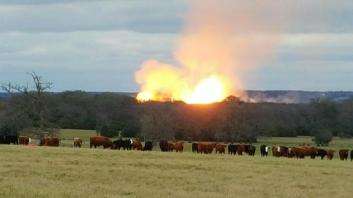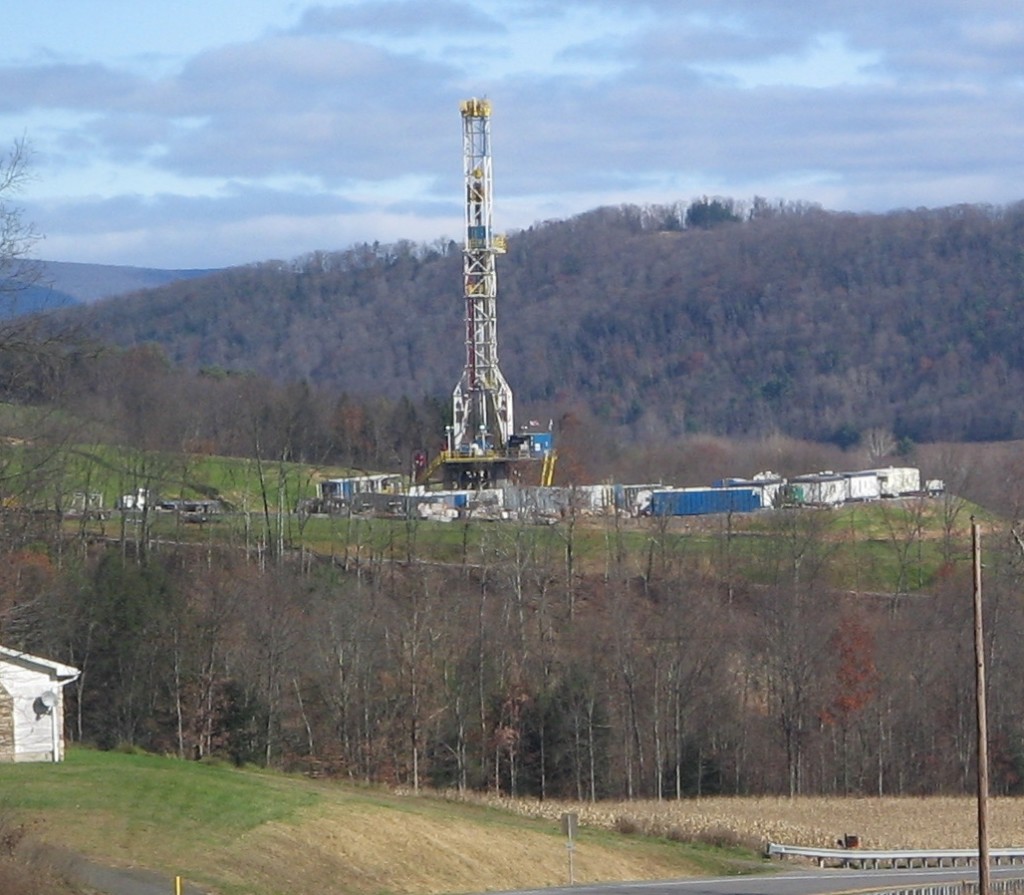One of the things that made the Marcellus shale so exciting for producers at the beginning of the Marcellus boom was that it was rich in natural gas liquids, including ethane, pentane, propane, and butane. The latter can be refined into alkylate, an octane booster. It is “key for cleaner burning gasoline” (.pdf). More on mixing gasoline here. So, changing butane to alkylate will help alleviate some of the environmental issues with burning hydrocarbons. It won’t end it, of course, because hydrocarbons are still being burnt, but it will help. Just another way that natural gas is helping improve things here in the good old U. S. of A.
All that said, MarkWest and Marathon are thinking about building an alkylation plant somewhere near an existing MarkWest plant in Jewett, Ohio. Yes! The more the merrier. Use that natural gas up close to home.
On a related not, there’s a proposal to build a 550-megawatt gas-fired power plant in Elizabeth Township, PA. The unusual thing about this plant is that the location is a contaminated industrial landfill. Putting an energy plant on this site would be an excellent use of a bad resource. It would kill two birds with one stone, putting to use difficult-to-use property and using abundant and cheap local natural gas to create needed electricity.
We hate to see the natural gas produced here in West Virginia not being put to its highest and best use. Turning it into a final product close to home is much better than shipping it away as a raw product. Now if only we could get a few more of these chemical plants, cracker plants, energy plants, and refineries located inside West Virginia.

